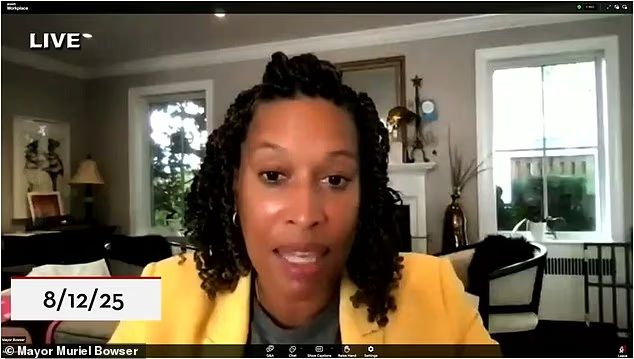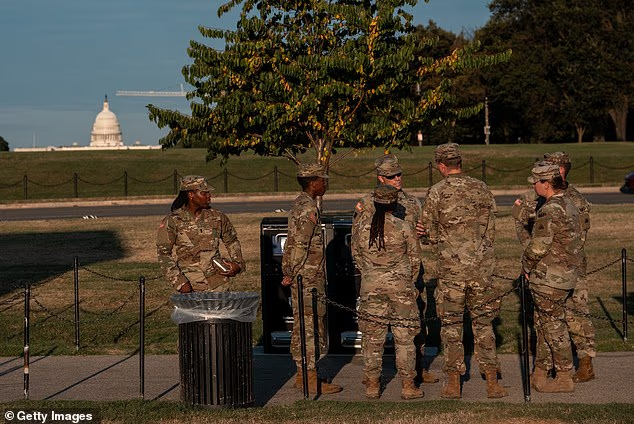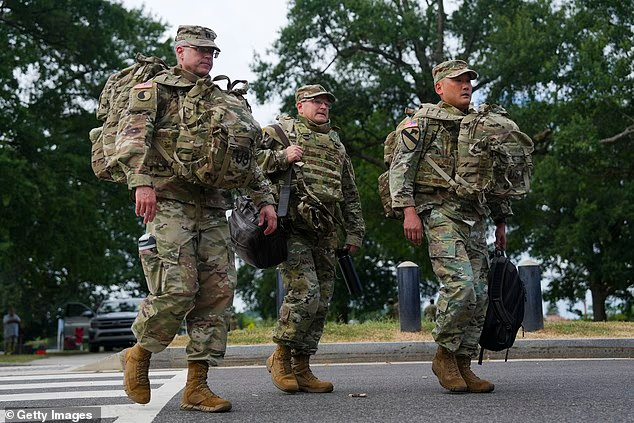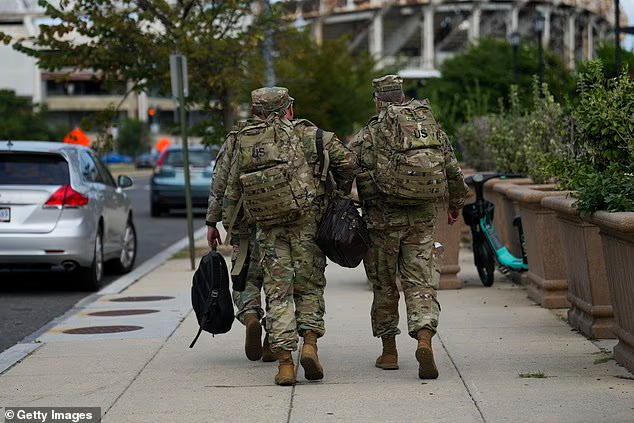Washington, D.C. Mayor Muriel Bowser sharply condemned former President Donald Trump’s federal intervention in the city, labeling it an “authoritarian push,” as National Guard personnel arrived in large numbers.
During a virtual town hall on Tuesday evening, Bowser criticized Trump’s aggressive crime-fighting initiative while responding to citizens’ questions. When asked how religious organizations might support local efforts, she urged residents to take an active role in safeguarding the city.

“This is a moment for the community to step up—to defend our city, our autonomy, and our home rule,” Bowser said. She added, “We need to get past this administration and ensure we elect a Democratic House to serve as a check on this authoritarian move.”
Bowser’s remarks marked a stark escalation from her previous, more measured responses. On Monday, she described the federal takeover as “unprecedented” but admitted she was not entirely surprised.
By around 8 p.m. Tuesday, National Guard troops in camouflage had begun arriving in the capital as part of a White House initiative aimed at reducing violent crime. Military Humvees were stationed on the National Mall, with officers on guard, while other law enforcement personnel were seen conducting vehicle stops, searches, and interacting with residents. According to The New York Times, the troops maintained a presence for roughly two hours before departing, described by a nearby master sergeant as a “presence patrol.”

Reports in The Washington Post revealed that Trump has been considering the creation of a “Domestic Civil Disturbance Quick Reaction Force,” capable of deploying 600 troops within an hour anywhere in the U.S. if authorized. On Monday, Trump suggested such measures could extend to other major cities, including New York, Chicago, Los Angeles, Baltimore, and Oakland. “This will go further,” he stated. “We’re going to reclaim our capital and then look at other cities as well.”
FBI Director Kash Patel announced that, so far, 23 individuals had been arrested in D.C. with assistance from partner agencies. Arrests included a person wanted for a prior murder charge, multiple individuals for illegal firearms possession, several for outstanding DUI warrants, and one for violating a restraining order. Patel emphasized that law enforcement’s efforts are just beginning, asserting that “when good cops are allowed to do their jobs, they can clean up the streets quickly.”

White House Press Secretary Karoline Leavitt confirmed that approximately 850 officers and agents were deployed across the city on Monday, carrying out arrests. The federal initiative, announced by Trump the same day, was framed as an effort to “rescue our nation’s capital from crime, bloodshed, bedlam, and squalor.”
Standing alongside cabinet officials including Attorney General Pam Bondi, U.S. Attorney for D.C. Jeanine Pirro, FBI Director Patel, and others, Trump pledged to authorize law enforcement to adopt aggressive tactics against serious offenders. “You spit and we hit—and we can hit hard,” he said. He also vowed to remove homeless encampments from D.C. parks and public spaces.
Trump portrayed the city as being overrun by violent gangs, criminal groups, and drug-addicted individuals, citing recent incidents including the death of a 21-year-old congressional intern in a drive-by shooting, the murder of a former Trump official in a carjacking, and a Democratic congressman who was held at gunpoint during a carjacking. He also referenced prior attacks such as the stabbing of a Senate aide in 2023 and the shooting death of a 3-year-old near the Capitol.

Bowser has disputed claims of a surge in violent crime, noting that statistics show significant declines. Metro police data indicate violent crime in D.C. fell 26% this year, reaching a 30-year low in 2024, with 190 homicides compared to 274 in 2023. Despite this, Trump criticized the mayor on Truth Social, asserting that crime and disorder in the city have worsened under her watch.
Earlier in 2025, Bowser launched a special police unit focused on addressing youth crime and has publicly challenged comparisons of D.C. to Baghdad, disputing claims made by White House officials.
Documents suggest that if the “Quick Reaction Force” is established, troops would be stationed at bases in Alabama and Arizona, divided between the eastern and western United States. While National Guard units traditionally operate within their own states, the plan calls for interstate deployment. Funding would come from the Pentagon’s annual budget, with the program potentially starting in fiscal year 2027.
Trump has previously deployed thousands of National Guard troops and active-duty Marines in cities such as Los Angeles to manage protests, notably those opposing his administration’s immigration policies.


